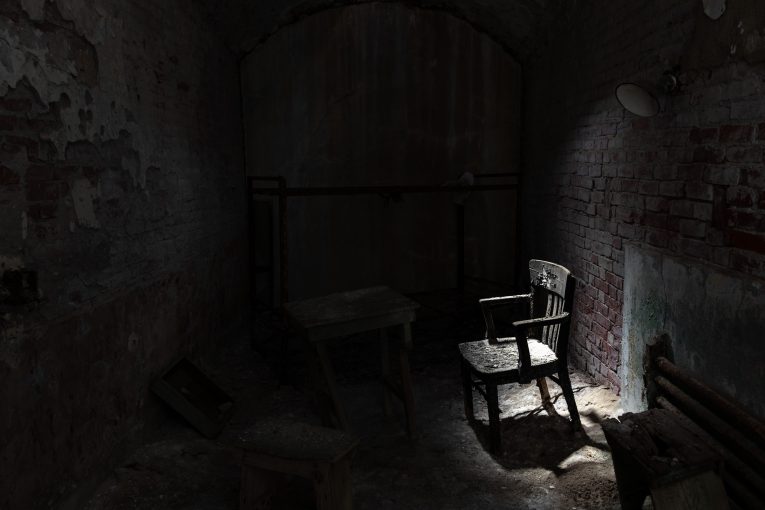

Via Unsplash.com

by Kevin McCarthy
Before I came to prison for this offense, I had an interpersonal association with a prison gang affiliate. The substance of that association was drugs and drug use. When I came to prison I was labeled as a prison gang associate and thus placed in solitary confinement. I was subsequently sent to Pelican Bay State Prison SHU (Security Housing Unit), where the CDCR claimed that it housed “the worst of the worst.” The nature of my crime was drug related. I was on heroin and I attempted to extort a drug dealer for heroin. However, since I had an association with a Mexican prison gang associate, I was renamed “the worst of the worst.” It didn’t matter that the underlying elements of the crime were drugs and my drug use. There was a nexus to a prison gang affiliate and that made me the worst of the worst. Punishment and oppression for association or status, rather than misconduct, is part of  the American experience for many. Bigotry, misogyny, and xenophobia are embedded in the dominant white, patriarchal socio-economic order. Moreover, the subjugation of the poor and politically weak, for economic gain, is part of the structure of capitalism, which is also part of the American experience for many.
the American experience for many. Bigotry, misogyny, and xenophobia are embedded in the dominant white, patriarchal socio-economic order. Moreover, the subjugation of the poor and politically weak, for economic gain, is part of the structure of capitalism, which is also part of the American experience for many.
When I arrived at the SHU I noticed that the majority of others were renamed as prison gang affiliates, but the basis for that renaming was innocuous in nature. Apart from mere association (interpersonal friendships without any overt misconduct) many were renamed as prison gang affiliates for the cultural art they drew or possessed, or the literature they read. Based on my experience, a human being will look for sources of strength in response to oppression, or stressful circumstances. Many inmates found strength through glorious groups within their culture. (For Mexicans it was Aztecs, and for African-Americans it was Zulus. If there were Japanese inmates in the SHU I’m sure that they would’ve found strength through the study of Samurai.) However, CDCR labeled many cultural texts, and cultural symbols, as gang related and used it as a means of placing and retaining inmates in the SHU. I personally witnessed the punishment of many blacks for possessing black liberation literature.
CDCR and the guards’ union created a lie that we were the worst of the worst and it benefitted them to perpetuate that lie for two reasons: funding and their conscience. The SHU creates more jobs and more revenue. There is a clear economic incentive to place and retain as many inmates in the SHU as possible. In the mid-2000s CDCR started receiving extra funding (mission-based funding) to accomplish this end. In order to justify this extra funding come annual budget time, the worst of the worst had to continue to exist. The guards had to believe this lie in order to desensitize themselves from the horror that they were a part of. It’s akin to a Nazi SS prison guard forcing himself to believe Hitler’s rhetoric about Jews so that he could fulfill his duties. We were treated very disparagingly. It was a very humiliating experience. We were censored from a lot of literature. We were denied basic items such as sweats or calendars. We were put through the humiliation of stripping naked any time we left the living section. What really added insult to injury was the guards’ smug disposition towards us. It was difficult for many of us who were educated and understood that the ruling class would employ devices to splinter the working class to undermine it as a threat.
The majority of the guards gained employment at the prison (Pelican Bay) after the local lumber mills closed down. They were working class whites without any higher education. They shared more common interests with us than with the legislators and bureaucrats in Sacramento. The economic and political forces that they struggled against, we struggled against. However, instead of combating the roots of the problems, they reinforced the structure of inequality that capitalism creates.
The “worst of the worst” label was completely arbitrary and self-serving. It was merely a means to an end. It was merely a tactic in the class war that the ruling class has been waging since this country’s inception.
Republished from “Perspectives from the Cell Block: An Anthology of Prisoner Writings” – edited by Joan Parkin in collaboration with incarcerated people from Mule Creek State Prison.
